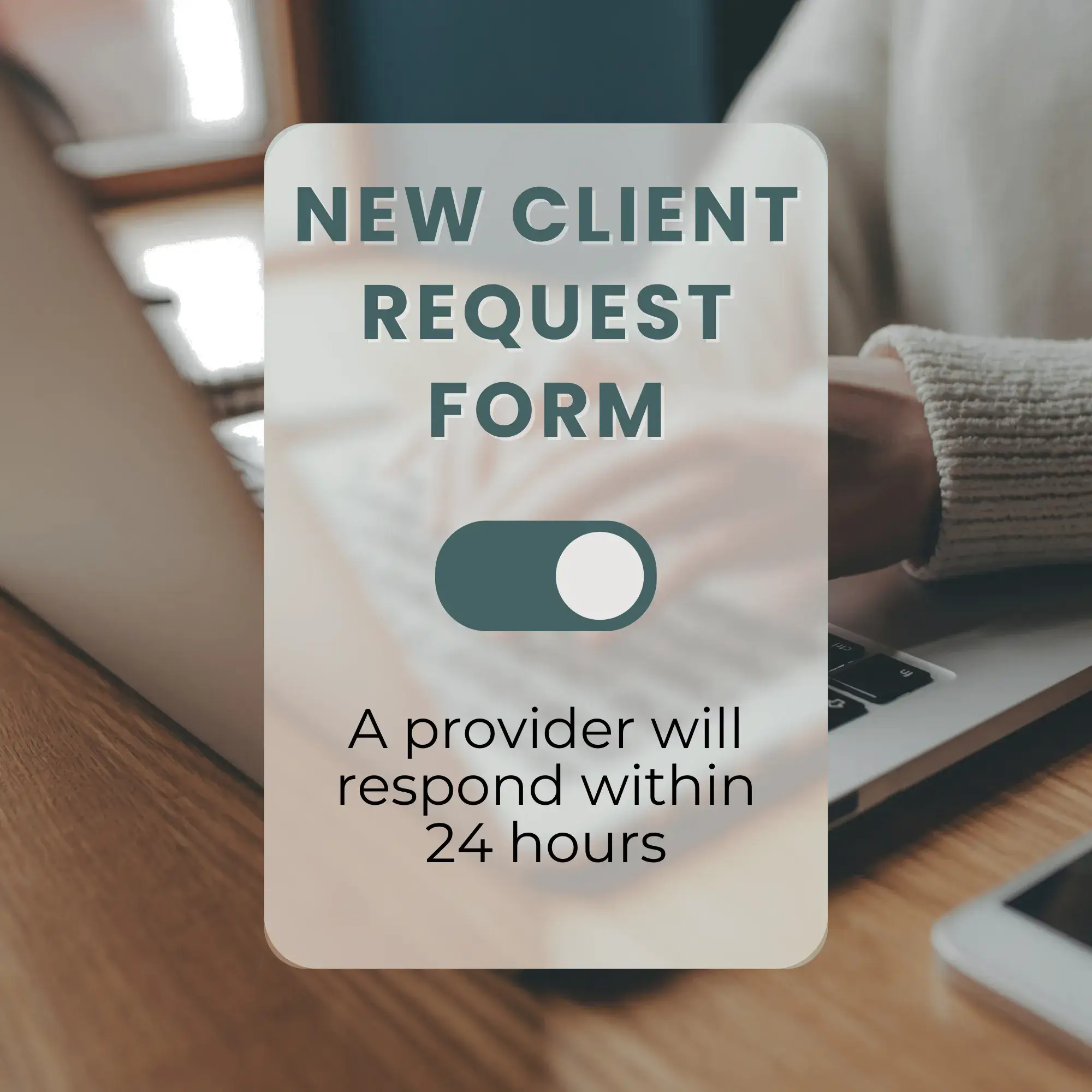5 Ways Therapy Can Build Self-Esteem & Boost Confidence

Struggling with self-esteem isn’t uncommon, and most of us have had times where our self-esteem was low. However, if low self-esteem is getting in the way of our achievements, relationships, or happiness, than it might be good to go to therapy for self-esteem support.
Whether it’s due to past experiences, societal pressures, or personal challenges, feeling less than confident can significantly impact your overall well-being. But don’t worry—therapy can be a powerful tool to help you reclaim your self-worth. Let’s dive into how therapy can transform your self-esteem and boost your confidence.
Understanding Self-Esteem
Before reviewing the benefits of therapy, let’s clarify what self-esteem actually is. In simple terms, self-esteem refers to how you perceive yourself—your overall opinion of your worth and value. High self-esteem means you have a positive view of yourself, while low self-esteem means you see yourself in a negative light. Low self-esteem can lead to various issues, including anxiety, depression, and relationship problems.
Techniques Used in Therapy to Boost Self-Esteem
Therapy provides a safe and supportive environment where you can explore the roots of your low self-esteem. Here are some key ways therapy can help,,,
Identifying Negative Thinking
Setting Realistic Goals
Therapists help you recognize and challenge negative beliefs about yourself. By identifying these patterns, you can begin to reframe your thinking and develop a more positive self-view.
Low self-esteem often stems from setting unrealistic expectations. A therapist can help you set achievable goals, which can lead to a sense of accomplishment and boost your confidence.
Developing Coping Skills
Enhancing Self-Awareness
Therapy equips you with strategies to cope with setbacks and criticism, allowing you to maintain a healthier self-image even in challenging situations.
Through therapy, you gain deeper insights into your strengths and weaknesses. This self-awareness is crucial for personal growth and improving self-esteem.
Building Healthy Relationships
Therapists can guide you in forming and maintaining healthy relationships, which are vital for a positive self-concept. Supportive relationships reinforce your self-worth and provide a buffer against negative self-perceptions.
Types of Helpful Therapy for Self-Esteem Challenges
Cognitive-Behavioral Therapy (CBT)
CBT focuses on changing negative thought patterns and behaviors. It’s highly effective in helping individuals develop a more positive self-image.
Mindfulness-Based Therapy for Self-Esteem
This approach encourages being present and non-judgmental about your thoughts and feelings. Mindfulness can reduce self-critical thoughts and promote self-acceptance.
Psychodynamic Therapy
By exploring past experiences and unresolved conflicts, psychodynamic therapy helps you understand how these factors contribute to your current self-esteem issues.
Humanistic Therapy
Humanistic therapy emphasizes personal growth and self-actualization, helping individuals recognize their intrinsic worth and potential and boost self-esteem.
Interpersonal Therapy (IPT) for Self-Esteem
IPT focuses on improving interpersonal relationships and social functioning, which can positively impact your self-esteem.
Practical Tips for Maintaining Self-Esteem
Beyond therapy, there are several practical steps you can take to maintain and boost your self-esteem:
Practice Self-Compassion
Set (& Maintain) Boundaries
Engage in Positive Self-Talk
Be kind to yourself, especially when you make mistakes. Treat yourself with the same compassion you would offer a friend.
Learn to say no and protect your time and energy. Setting boundaries is crucial for maintaining self-respect and self-worth.
Challenge negative thoughts and replace them with positive affirmations. Remind yourself of your strengths and achievements.
Surround Yourself with Supportive People
Pursue Your Interests and Hobbies
Build a network of friends and family who uplift and support you. Avoid individuals who bring you down.
Engaging in activities you enjoy boosts your confidence and provides a sense of accomplishment.
Building Self-Esteem: In a Nutshell
Building self-esteem is a journey, and therapy can be an invaluable companion along the way. By addressing negative thought patterns, setting realistic goals, and developing coping skills, therapy helps you cultivate a healthier, more positive self-view. Remember, it’s never too late to start working on your self-esteem. Embrace the process and give yourself the gift of confidence and self-worth.
Ready to start Therapy?
📲 Call
💬 Text
💌 Email
📝 Request a Discovery Call

FAQ's About Therapy in New Jersey
How do I get started as a new client?
New Clients can reach out to us directly via call, text or email here:
Or, you can complete a new client form and we’ll reach out to you within 24 hours here:
What are your specialties?
Our therapists have dedicated their clinical work to specific niche areas. Check out our therapy service page here to learn about our areas of expertise
What type of therapy do you offer?
We offer traditional and non-traditional therapy
Traditional therapy, such as talk therapy incudes:
- Individual therapy
- Couples Counseling
- Family Therapy
- Cognitive Behavioral Therapy
- Emotion-Focused Therapy
Do you offer Ketamine Therapy?
Yes! Ketamine has shown promise in treating various mental health conditions, including PTSD, Anxiety, Depression, Phobias and OCD. As Ketamine therapy providers, we offer this service to help clients break cycles of thinking traps that lead to compulsive behaviors.
Is Online Therapy As Effective As In-Person Therapy?
Online therapy is essentially face-to-face counseling, just conducted remotely. Studies show that teletherapy is as effective as traditional counseling. Professional organizations and state governments recognize its benefits and have set regulations for it. However, like any therapy, its success in achieving your goals isn’t guaranteed. It’s important to discuss with your therapist whether teletherapy is working for you.
What age groups do you serve?
Currently, we work with New Jersey clients ages 10+
Do you offer traditional talk therapy?
of course! though we have some unconventional therapy approaches, we are rooted in evidenced based practices. Talk therapy is a major player in the therapy room! See What we Treat and Integrative Services for more information
What Geographic Areas Are Served?
Currently, we serve clients in New Jersey and are expanding to other states as telehealth laws evolve. While telehealth offers the convenience of attending sessions from anywhere, state laws require clients to be in-state during their session.
Does my insurance cover my visits?
We provide”Courtesy Billing” for clients who are using the Out-of-network insurance benefits.
Our Insurance Page shares a small blurb about Why We Left Insurance Panels
Can I Change Therapists If I'm Not Happy?
Yes, you can switch therapists to another provider within the practice, or we can provide you a referral if preferred. We want to ensure that your time and effort are well spent, and that you are getting the relief you need, that’s why we work collaboratively with each other in the practice, as well as outside therapists who we know and trust.
What is your cancellation policy?
We ask that clients provide at least 24 hours notice in the event that they need to cancel to avoid the 50% cancellation fee. we understand that life happens and do our best to be flexible & reschedule.
How Do I Know If Therapy Is Helping?
You should feel like you’re making progress. Signs it’s working include:
Feeling comfortable talking to your therapist
Your therapist respects boundaries
You’re moving towards your goals
You feel listened to
You’re doing better in life
Your self-esteem is getting better
Is Online Therapy Easy to Use for Non-Tech-Savvy People?
Yes, it’s pretty simple to access sessions. You’ll need basic internet skills, such as opening and visiting the patient link sent to you via email. It’s similar to video chatting like Facetime or Zoom. We can also walk you through it on the phone the first time to ensure a strong connection
What Questions Should I Ask My New Therapist?
Feel free to ask anything. Some good questions are:
- How often will we meet?
- What do you specialize in?
- What experience do you have with my issue?
- What outcomes can I expect?
- How will I know I’m progressing?
- How long do you usually work with clients?
- How will we set my treatment goals?
How Should I Prepare for My First Session?
Showing up is all that you need to do! But if you really want to get the most out of session, it could help to take some time to think about what you want from therapy. It helps to write down your goals, questions you have or things that you feel are important to share.
What is the difference between associate therapists & fully licensed therapists?
Our Qualifications:
Our founder, Rebecca Sidoti, is a highly qualified, state-licensed therapist and supervisor with extensive training in anxiety related disorders and innovative treatment such as Ketamine Therapy. Mind by Design Counseling adheres to standards set by the our governing counseling boards.
To see each providers credentials, training and licenses, visit our “Meet the Therapists” Page to learn more.
- LAC/LSW are therapists who may practice clinical work under the supervision of a fully licensed therapist.
- LPC/LCSW are therapists who have completed the necessary clinical hours post-graduation under supervision and can practice clinical work independently.
Is Virtual Counseling Suitable for Everyone?
Online therapy might not be as effective for individuals with chronic suicidal thoughts, severe trauma, significant mental health history, or those recently in intensive care. Such cases often benefit more from traditional, in-person counseling. We’ll help you decide if our online services are right for you during your intake and evaluation.
What Equipment is Needed for Online Therapy?
To join a session, log in using the credentials we provide. No downloads are needed. Our platform, compatible with both individual and group sessions, requires:
A computer or mobile device with a webcam and internet access.
We’ll help you test your setup before your first appointment to ensure a reliable connection. iOS users should use the Safari browser for mobile and tablet sessions.
What Questions Will Therapists Ask Me?
It depends on your goals. Expect questions about your thoughts, feelings, relationships, work, school, and health. They’ll ask to understand your therapy goals.
How Do You Keep Client Information Secure?
Security and Confidentiality of Sessions:
Your privacy is crucial to us. We use TherapyNotes, a HIPAA-compliant platform, ensuring secure and confidential teletherapy sessions. This platform’s security features include encrypted video connections, secure data transfers, and encrypted databases, ensuring your information is safe at all times.
What is VRT used for?
we use VRT to support Exposure Therapy, a long standing traditional therapy modality to treat phobias, anxiety and stress. we send a headset directly to your home so you can access VRT from anywhere.
VRT not only helps with exposure therapy for phobias, but is great for ADHD, mindfulness, PTSD and social anxiety.












